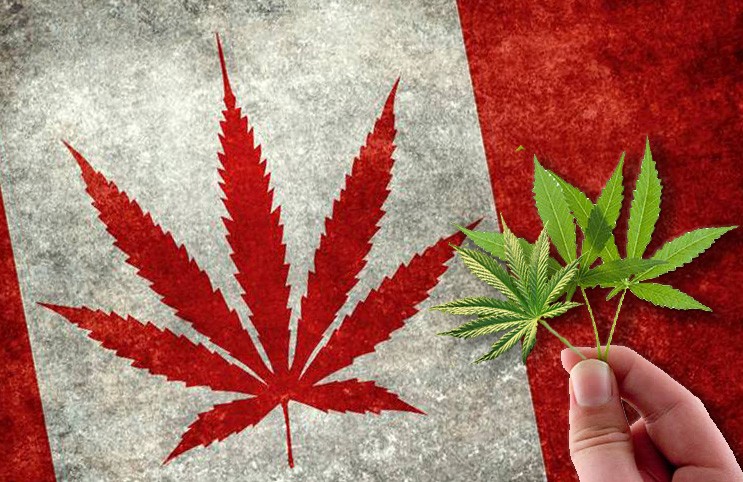Cannabis
5 Reasons To Privatize Canadian Cannabis
The provinces and territories of Canada have been scrambling to determine their plans for the federal legalization of cannabis, which is set for July 2018. A range of plans have been discussed, nearly as diverse as the provinces themselves. British Columbia, Alberta, Manitoba, and Newfoundland & Labrador will all have provincial bodies controlling distribution, though the product will actually be sold through private retailers. Other provinces and territories, however, such as Ontario, Quebec and Yukon are planning on complete government control.These monopolistic plans have some people shaking their heads. Large-scale Canadian cannabis producers like Aurora have been diversifying their assets because of little faith in some of the proposed provincial plans. Most people agree that complete privatization would be the best option to give Canadian patients proper access to their flower, concentrates, edibles, tinctures, and other cannabis products.
CONVENIENCE IS KING
A provincial monopoly means that only one body (i.e. the provincial government) will be responsible for setting up enough infrastructure to supply millions of Canadians with medicine. With no help, rigid provincial monopolies will not stand a chance of developing and expanding rapidly enough to eliminate the so-called black market. Isolated stores with tight hours will continue to drive consumers toward established black market vendors.
Ontario, for example, only plans to have forty dispensaries open by next year, with the majority to be located in the Greater Toronto Area—that’s eighty dispensaries for a third of the Canadian population! Quebec will only have fifteen stores to supply a province covering over 1.5 million square kilometres. Most provinces are also planning to make online sales available as well, but waiting for delivery may not be so attractive to consumers who already know a neighbourhood dealer.
As Cam Battley, the executive vice president of Aurora put it, “This very limited, very controlled government monopoly approach will not crack the black market.“1 By allowing private companies to grow, process, distribute, and trade freely, provinces may well be able to expand far enough and quickly enough to drive criminal elements out of the business and turn the tables to a fully legal market.
NO EDIBLES!?
Location isn’t the only concern with provincial monopolies—many people have concerns about which products may or may not be available at province-run dispensaries.
While many provinces have remained conspicuously silent on the matter, at least one top bureaucrat has suggested that edibles may not be available in Ontario’s government-run outlets.2 This simple, classic method of consumption is a treat for many—literally, considering the selection of truffles, and even soda, which can be purchased at dispensaries in some U.S. states. Not only that, but some patients suffer from respiratory conditions meaning that they cannot smoke or vaporize flower—for them, edibles may be the go-to method of consumption.
Privatization would allow for more creativity, selection, and experimentation of Canadian cannabis, ultimately improving the products available.
ARE YOU EXPERIENCED?
Legal or not, cannabis has been a part of Canadian culture since the early 20th century, and there have always been people willing to risk incarceration to produce and learn more about cannabis. Professional cannabis producers and cannabis connoisseurs—including those already employed in the black market—possess knowledge of medical cannabis gained from years of experience. Their experience is routinely called upon by patients seeking the right medication for them.
Shutting out existing businesses to set up an entirely new enterprise, and hiring new employees who will require training to learn just a fraction of what experienced budtenders and other professionals already know is counterproductive. Not only that, but excluding these experienced professionals will potentially hinder patients’ access to medicine, as well as limit the knowledge available to new cannabis consumers.
Sonya Sarrafin, a volunteer at Canna Connoisseurs, is understandably skeptical of provincial monopolies. “How much does the government really know about growing?” she says. “The people who know the most about the growing, and the plant, and how to care for it, are people who have been criminalized. So now what we’re left with is people who don’t know anything, in suits . . .”3
QUALITY CONTROL
On a related note, illegal growers have done much and more in terms of developing the best possible cannabis plants, including strains specially designed to treat certain medical conditions. Excluding existing, experienced, and knowledgeable growers and producers could lead to government stores selling inferior cannabis. If that’s the case, consumers are going to go right back to their black market sources, who offer products which are in some cases the result of a lifetime of experience.
IS THE PRICE RIGHT?
Privatization of Canadian cannabis market would allow for competitive pricing, at least within government-established parameters. A government monopoly means monopoly prices, which may be unrealistically high. Even provinces like British Columbia—with more reasonable plans which will include private stores—will still have a level of government interference in the form of the Liquor Distribution Branch controlling distribution. An additional level of control inevitably translates to an addition in price.
Some critics have pointed out that government interference on a provincial level is excessive. “Cannabis is already regulated by Health Canada federally so the province doesn’t need to be looking into the quality or anything like that. I don’t see why producers can’t just sell directly to retailers or the customer,“4 says Dana Larsen of Sensible BC.
Just like quality, price will be a major factor as to whether consumers will make the switch to legal establishments, or stick to their black market suppliers.
THE AGE OF REASON
Whether it’s an increase in price, a reduction in quality, poor access or inferior product, government monopolies will surely have a detrimental effect on Canadian cannabis. Privatizing the Canadian cannabis market, and the healthy competition which that would create, would provide the proper conditions for quality, creativity, and abundance to thrive. Of course, provincial governments want a cut of the action, but that could easily be provided through taxes on sales of quality product by knowledgeable vendors. Canada’s exit from the dark age of prohibition should not be marred by provincial governments’ bungling of the legalization process.
Regulate, sure. But more importantly, privatize, ensure quality, learn from those who know, and don’t mess with our edibles, man!
- http://www.cbc.ca/news/business/canada-cannabis-greenrush-1.4383010
- http://www.cbc.ca/news/opinion/ontario-pot-plan-1.4306619
- http://www.cbc.ca/news/business/ontario-marijuana-reaction-1.4284050
- http://www.cbc.ca/news/canada/british-columbia/bc-recreational-pot-age-1.4433839



Good Q…… doesn’t seem like much ‘involvement/engagement’ going on (?)
Bang on, so I gotta ask. Why no blog posts in such a long time? Doesn’t your bottom line benefit from these kinds of posts if you manage them properly?